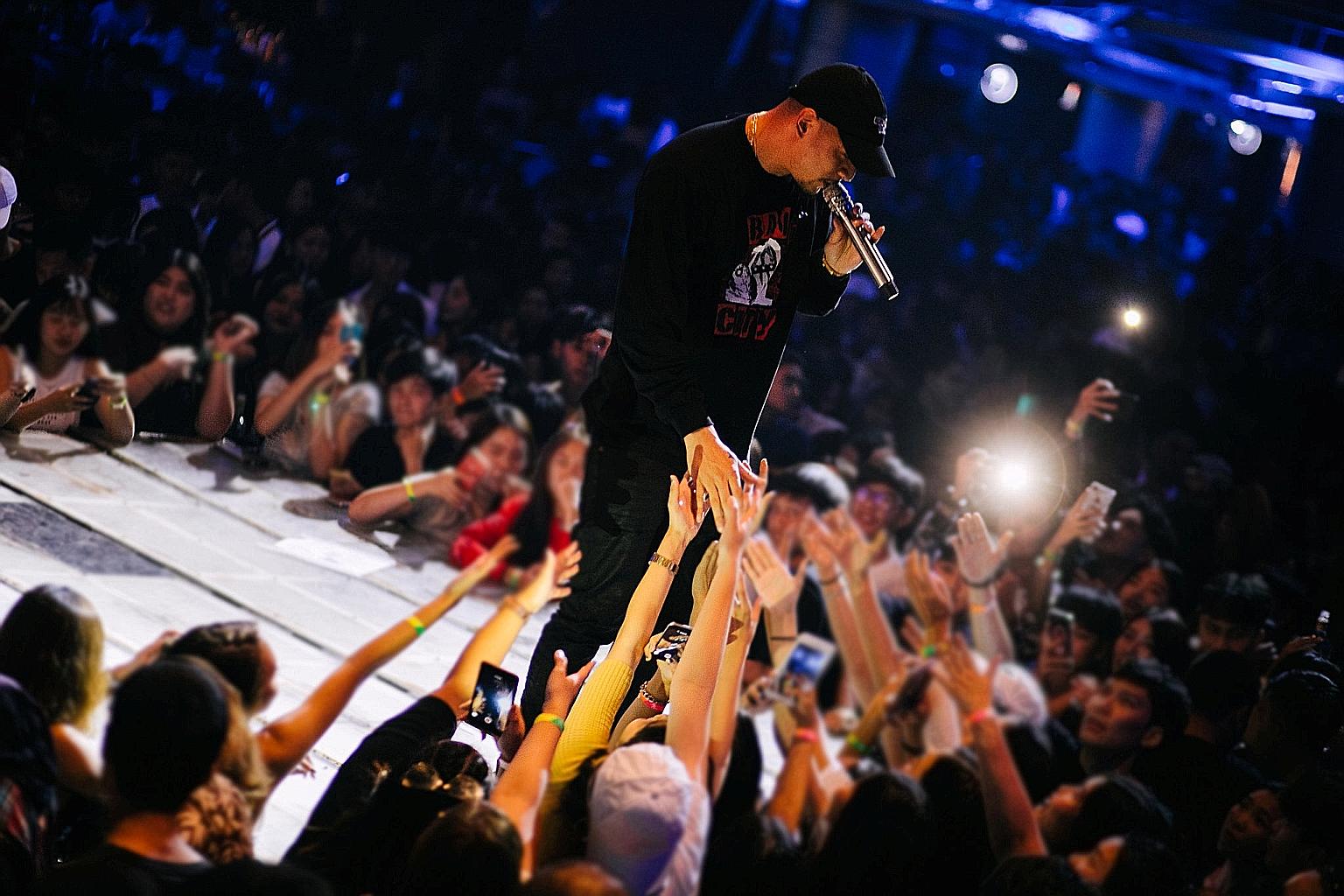Hip-hop's growing fame in Thailand
Sign up now: Get ST's newsletters delivered to your inbox

Thai rapper Prinya "DaBoyWay" Intachai at a hip-hop concert in Bangkok in November last year. He is among the artists who have signed with Def Jam Recordings, the flagship hip-hop label of Vivendi's Universal Music Group.
PHOTO: REUTERS
BANGKOK • Geographically and culturally, the rice paddies of north-eastern Thailand are thousands of kilometres away from the birthplace of hip-hop in New York City's The Bronx.
But for Thai rapper RachYo, the language of hip-hop is universal.
A recent video features the 18-year-old artist rapping in a rice field, sitting on an old truck as he laments in Thai about jealousy over a girl. It was viewed 57 million times on YouTube.
"I rap about things that really happened to me," says RachYo, based in Nakhon Ratchasima province in north-eastern Thailand.
The rapper, whose full name is Rachayothin Pengjunta, says he mostly sings about girls.
The rising popularity of hip-hop in Thailand has created stars that have drawn the attention of music industry players. Def Jam Recordings, the flagship hip-hop label of Vivendi's Universal Music Group (UMG) that is home to Rihanna, 2 Chainz and Kanye West, last year opened branches in Thailand and Singapore.
One of the first artists it signed was Thai rapper DaBoyWay, who has one million Instagram followers. It has also signed five others from Singapore (Yung Raja, Fariz Jabba, Alif), Malaysia (Joe Flizzow) and Indonesia (A. Nayaka).
Def Jam plans to sign four more Thai artists this year, said Mr Paul Sirisant, who heads UMG and the label's operations in Bangkok.
Thai artists stand out from others in South-east Asia because the language innately rhymes in daily speech, lending itself to rap and hip-hop, Mr Sirisant said in an interview.
It has also spread to the country's rural areas, he added. "Thailand has already tipped in a big way - it's the paddy fields and hip-hop," he said, adding that top-tier rappers can earn around 40 million baht (S$1.8 million).
Broadcaster Workpoint Entertainment launched a reality television show in 2018, The Rapper, to find the next rap star. The competition was hugely popular, familiarising the public with the genre.
"The Rapper - the show - made hip-hop a household name. It was big among teenage boys, then it became a household name," Mr Sirisant said.
A group called Rap Against Dictatorship released a song in 2018 that drew millions of views on YouTube with lyrics such as "either eat the truth or bullets", calling out the military junta that ruled until last year.
Klong Toey by 19Tyger and H3NRI is about life in Bangkok's Klong Toey slum.
Maya Piyapan, 23, says his hip-hop crew, WARPGVNG, met online and have members from across the country. The group, which will hold a concert on Friday, have music about getting into trouble and problems with friends after finding fame.
"Labels have reached out to me to help with production and content, but not as an artist," said Maya.
Record deals are the dream for many artists, but not for RachYo - whose recent video Nok (the Thai word for bird) clocked 80 million YouTube views, more than Thailand's population of nearly 70 million.
He says he raps to express himself, but he is not interested in signing with a label.
"I like being home, in the country. I don't really like to go anywhere," he said.
REUTERS


